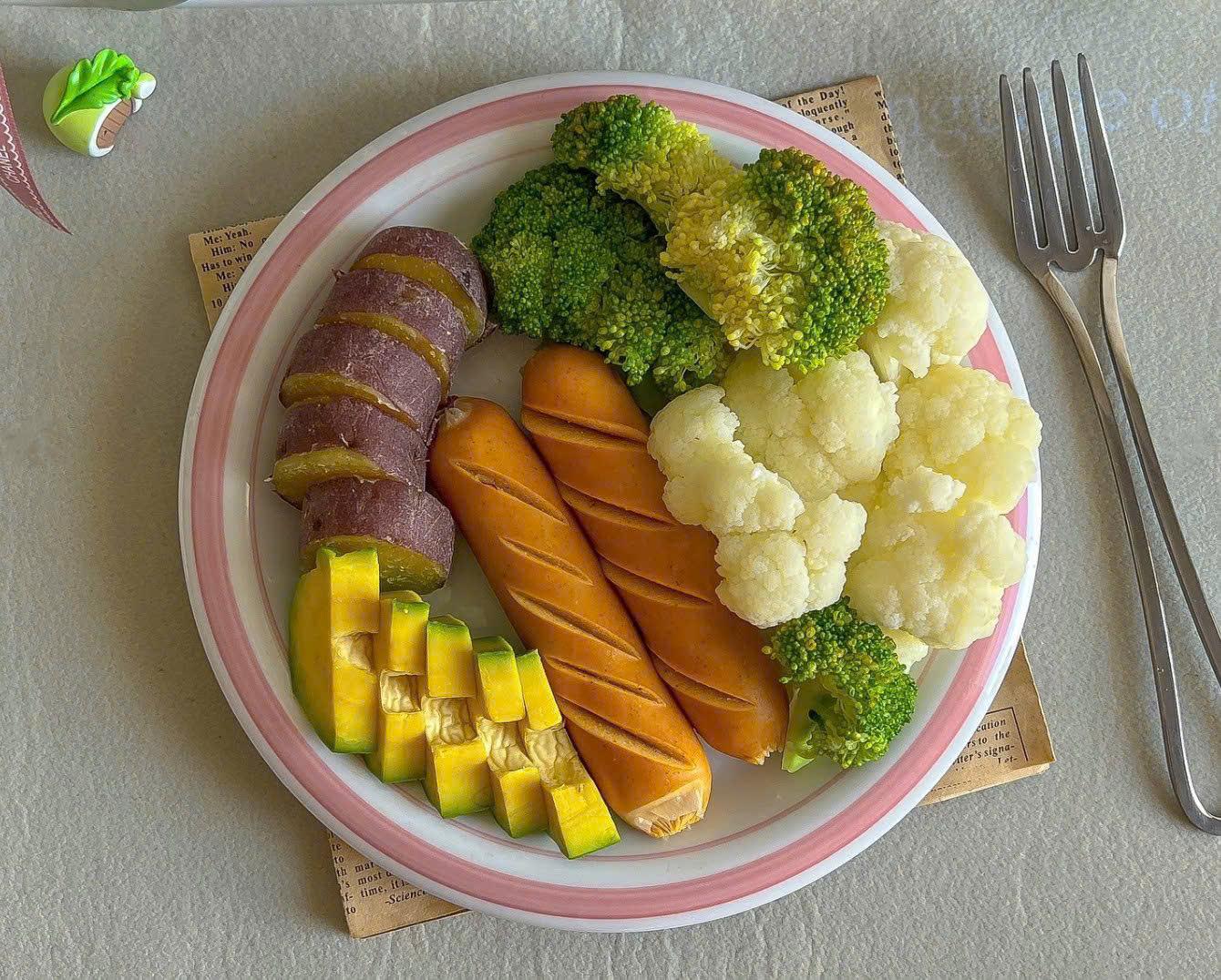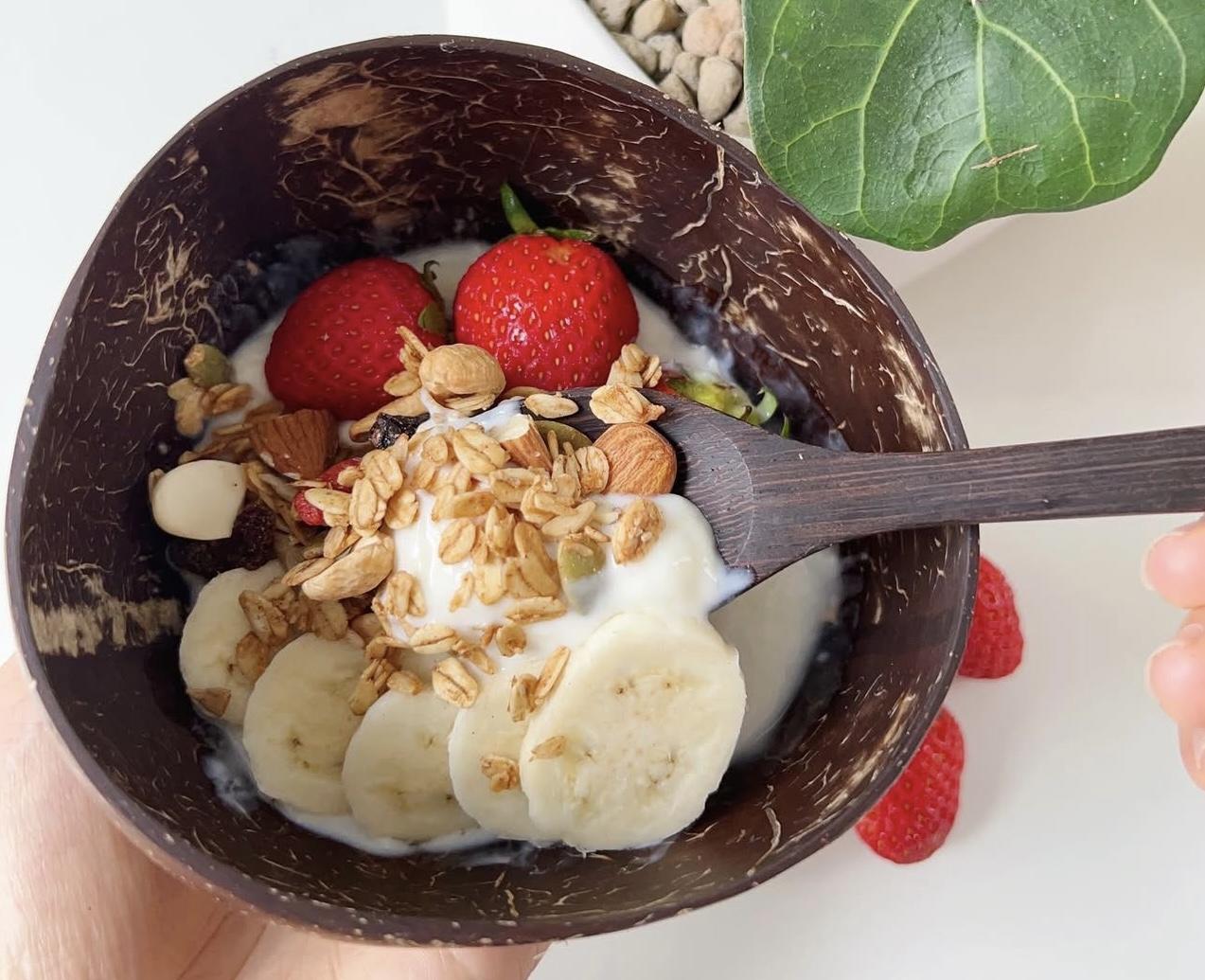Constipation is a common problem among children, according to Doctor Bui Thuy Nga, a pediatrician at Tam Anh General Hospital in Hanoi. Prolonged constipation can lead to loss of appetite, slow weight gain, digestive issues, and psychological problems. In severe cases, it can even cause rectal prolapse or hemorrhoids. Constipation in children is often caused by a lack of fiber in their diet, insufficient physical activity, dehydration, or underlying medical conditions such as Hirschsprung disease or Celiac disease. Neurological or spinal disorders, hypothyroidism, colorectal tumors, and medication side effects can also contribute to the problem.
Doctor Nga offers the following advice on how to prevent constipation in children.
Eating vegetables promotes bowel movements and detoxification.
During summer's high temperatures, children can become dehydrated, fatigued, and lose their appetite. Doctor Nga recommends limiting processed foods, which are often low in fiber. She advises incorporating cooling and bowel-movement-promoting vegetables to ensure regular and healthy digestive function. Good choices include sweet potatoes, gotu kola, heartleaf, bok choy, cauliflower, oranges, lemons, apples, bananas, papaya, and whole grains. Children should consume approximately 20-25g of fiber daily.
 |
Green vegetables are very beneficial for children's health. Photo: Lam Anh |
Increase physical activity.
Physical activity increases blood flow to all organs, including those involved in digestion. Discourage prolonged sitting and encourage at least three hours of exercise, walking, or physical activity per week. For infants, daily abdominal massages and allowing ample crawling time can stimulate bowel movements and aid digestion.
Establish a regular toilet routine.
Regularly holding back bowel movements is a significant risk factor for constipation. Establishing a fixed daily toilet time and ensuring the correct sitting posture are important. Thirty minutes before their scheduled toilet time, give the child a full glass of water or a stool softener. A gentle abdominal massage can also help relieve bloating and constipation.
Supplement with probiotics.
Probiotics can help prevent constipation in children by balancing gut flora and stimulating bowel movements. Probiotic strains such as lactobacillus and bifidobacterium soften stool, making bowel movements easier, and improve nutrient absorption. Consult a doctor before giving probiotics to children.
 |
Yogurt with fruits and grains aids children's digestion. Photo: Lam Anh |
Drink enough water every day.
Excessive sweating without proper rehydration can lead to mild to moderate dehydration and electrolyte imbalances. Children aged 1-3 should drink about 500-600ml of water daily, children aged 3-9 should drink 1,000ml, and children over 10 should drink 1,500-2,000ml.
Doctor Nga advises against giving children sugary drinks, carbonated beverages, tea, or coffee. Water and diluted fruit juice are the safest choices for hydration.
Hang Tran
| Readers can submit questions about children's health here for doctors to answer. |












